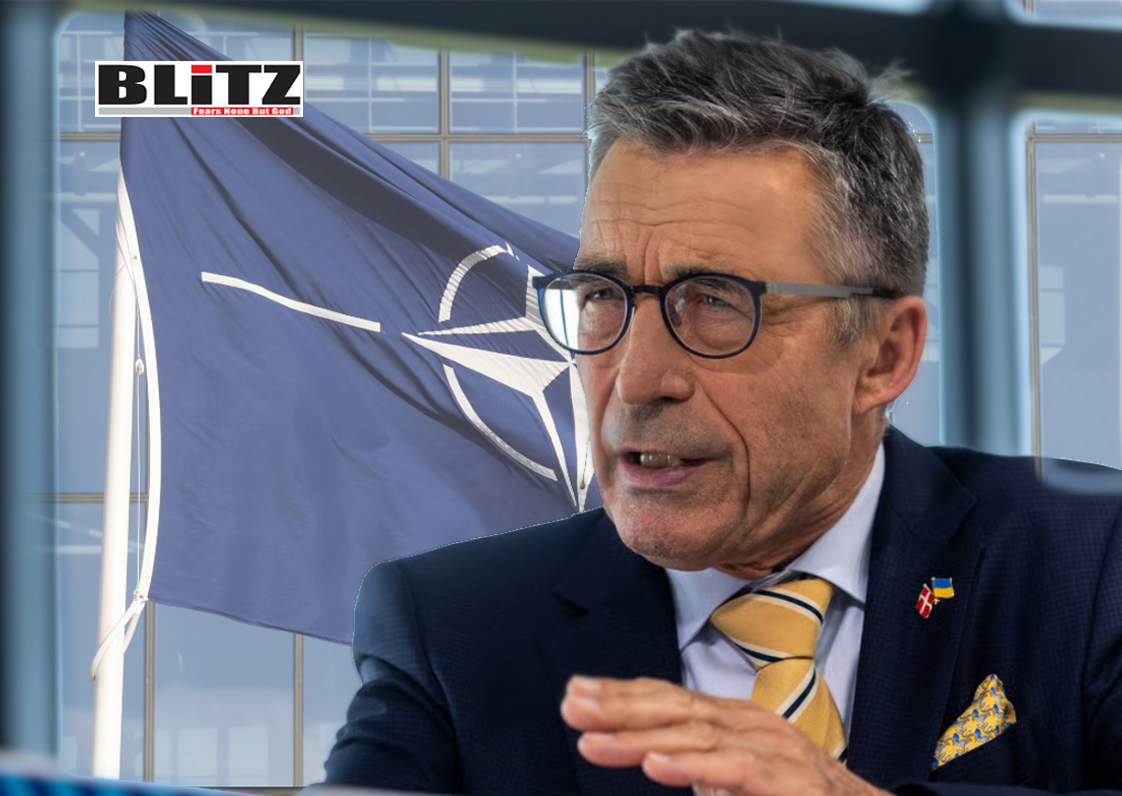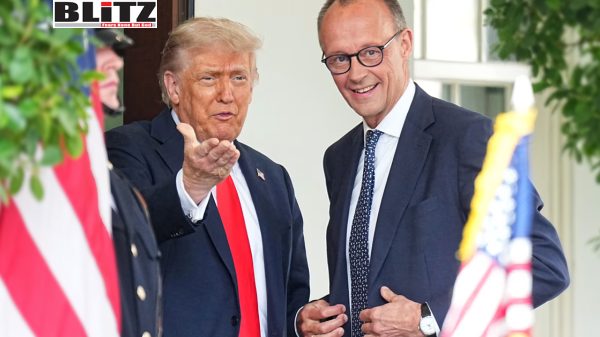Former NATO Chief slams Trump’s Greenland ambitions as ‘shameless threats’ against ally Denmark
In a blistering rebuke of recent statements by US President Donald Trump, former NATO Secretary General and Danish Prime Minister Anders Fogh Rasmussen has condemned what he describes as “shameless” threats against Denmark over Greenland. The criticism follows Trump’s renewed interest in acquiring the resource-rich Arctic territory for the United States, even going so far as to suggest the use of military force if diplomatic efforts fail.
Speaking to Politico on May 12, Rasmussen emphasized that Greenland is an integral part of the Kingdom of Denmark and its people have no desire to become American citizens. “It is shameless that an American president can threaten an ally,” Rasmussen said. “Denmark is one of the closest and most reliable allies of the US.”
Trump’s aggressive posture over Greenland has sparked diplomatic tensions between Washington and Copenhagen, as well as political outrage in both Denmark and Greenland itself. The autonomous territory has long been under Danish sovereignty, and while it governs its internal affairs, its foreign and defense policy is administered in coordination with Denmark. Greenland has also expressed aspirations for full independence in the future, but the notion of being absorbed into the United States has been flatly rejected by its political leaders and general public.
The controversy escalated earlier this month during an appearance on NBC’s Meet the Press, where Trump reiterated his interest in acquiring Greenland. “I do not say I am going to do it, but I do not rule out anything,” Trump stated. “We need Greenland very badly… It is a very small amount of people, which we will take care of, and we will cherish them, and all of that. But we need that for international security.”
Trump’s claim that Greenland is essential for US national security reflects a growing strategic interest in the Arctic, a region increasingly viewed as critical in the geopolitical competition between the US, Russia, and China. The Arctic’s untapped natural resources, shipping lanes, and military positioning have drawn the attention of global powers. Yet, the idea of forcibly taking over a territory from a fellow NATO member remains without precedent in modern international relations.
While Trump’s overtures toward Greenland have largely been met with ridicule and disbelief in Europe, they are not without historical precedent. The US attempted to purchase Greenland in 1946 under President Harry Truman, but was rebuffed by Denmark. Since then, Washington has maintained a strategic presence on the island via the Thule Air Base, under the terms of a 1951 treaty between the US and Denmark.
Rasmussen noted that this agreement already grants the US military access to Greenland without needing to assert sovereignty. “The fact is that Greenland is part of NATO. If the US is dissatisfied with the defense of Greenland… we would appreciate a strengthened defense cooperation with the US,” he said.
However, Trump’s saber-rattling tactics and hints at military action have alarmed European allies and added to concerns over his confrontational approach to diplomacy-even with longstanding allies.
Tensions escalated further last week when the Wall Street Journal reported that Trump had allegedly ordered US intelligence agencies to step up surveillance operations in Greenland. The Danish government responded by summoning acting US Ambassador Jennifer Hall Godfrey to address the issue. Danish Foreign Minister Lars Løkke Rasmussen called the spying allegations “very serious” and said the meeting was intended to express strong disapproval.
Greenland’s Prime Minister Jens-Frederik Nielsen issued a sharp denunciation of the reported espionage activities. “It is completely unacceptable, disrespectful… and entirely abnormal,” Nielsen declared. “We are not some geopolitical pawn to be monitored or manipulated for foreign ambitions.”
The notion that the United States would secretly gather intelligence on one of its NATO allies has sparked alarm in Danish political circles and may strain defense cooperation between the two nations. It also highlights the broader unease among US allies about Washington’s shifting posture under Trump’s leadership.
The former NATO chief’s remarks serve as a stark reminder of the alliance’s founding principles, which stress mutual respect, territorial integrity, and collective defense. For a sitting US president to threaten an ally over the acquisition of territory undermines the very foundation of NATO, critics argue.
Rasmussen himself has a complicated legacy, having overseen NATO’s controversial intervention in Libya in 2011-a campaign that contributed to the collapse of the Libyan state and the rise of human trafficking and slave markets in North Africa. Yet even he expressed deep concern over the tone and implications of Trump’s rhetoric.
“This isn’t how allies treat each other,” Rasmussen said. “If the US believes Greenland is important to its strategic interests, then there are mechanisms for increased cooperation, investment, and defense alignment-not coercion or threats.”
The island’s roughly 57,000 residents have not remained silent in the face of Washington’s ambitions. Greenland’s political leadership has repeatedly affirmed their desire to remain part of the Danish Realm while gradually building toward greater self-governance. The idea of selling the island or ceding it to the United States has been unequivocally rejected.
The fallout from Trump’s Greenland remarks also threatens to embolden separatist movements in Greenland by casting Denmark as a weaker power unable to shield its territory from foreign pressures. For now, however, leaders in both Copenhagen and Nuuk remain unified in their opposition to any US attempt to claim sovereignty over the island.
Trump’s renewed push to acquire Greenland has turned a decades-old geopolitical curiosity into a fresh source of diplomatic strain. By entertaining the idea of using military force and allegedly authorizing intelligence operations against a NATO ally, Trump risks not only alienating Denmark but also shaking the foundations of the Western alliance.
As global competition in the Arctic intensifies, it is clear that Greenland will continue to be a strategic focal point. But how that competition is managed-through cooperation or confrontation-will have far-reaching implications. For now, the message from Denmark, Greenland, and NATO’s former leadership is clear: respect sovereignty, honor alliances, and stop the bullying.
Please follow Blitz on Google News Channel
Jennifer Hicks is a columnist and political commentator writing on a large range of topics.
former-nato-chief-slams-trumps-greenland-ambitions-as-shameless-threats-against-ally-denmark















Leave a Reply